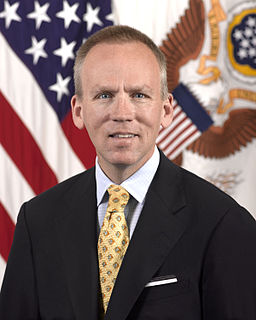A Quote by Jane Austen
There are few people whom I really love, and still fewer of whom I think well. The more I see of the world, the more am I dissatisfied with it; and every day confirms my belief of the inconsistency of all human characters, and of the little dependence that can be placed on the appearance of merit or sense.
Related Quotes
We scornfully decline, because of one whom we love and who will some day be of so little account, to see another who is of no account to-day, with whom we shall be in love to-morrow, with whom we might, perhaps, had we consented to see her now, have fallen in love a little earlier and who would thus have put a term to our present sufferings, bringing others, it is true, in their place.
There are really three players: 'absolutists', for whom it is possible to describe reality as it anyway is; 'constructivists' or 'humanists', for whom there is nothing beyond a world that is relative to human interests and conceptual schemes; and 'ineffabilists', like myself, for whom any describable world indeed exists 'only in relation to man', as Heidegger put it, but for whom, as well, there is an ineffable realm 'beyond the human'.
We disliked the rigours of existence, the unfulfilled longings, the enshrined injustices of the world, the labyrinths of love, the ignorance of parents, the fact of dying, and the amazing indifference of the Living in the midst of the simple beauties of the universe. We feared the heartlessness of human beings, all of whom are born blind, few of whom ever learn to see.
The criminal law has, from the point of view of thwarted virtue, the merit of allowing an outlet for those impulses of aggression which cowardice, disguised as morality, restrains in their more spontaneous forms. War has the same merit. You must not kill you neighbor, whom perhaps you genuinely hate, but by a little propaganda this hate can be transferred to some foreign nation, against whom all your murderous impulses become patriotic heroism.
The generality of men are so bound within the sphere of their circumstances that they have not even the courage to get out of them through their ideas, and if we see a few whom, in a way, speculation over great things makes incapable of mean ones, we find still more with whom the practice of small things takes away the feeling for great ones.
We have a great deal more kindness than is ever spoken. The whole human family is bathed with an element of love like a fine ether. How many persons we meet in houses, whom we scarcely speak to, whom yet we honor and who honor us! How many we see in the street, or sit with in church, whom though silently, we warmly rejoice to be with! Read the language of these wandering eye-beams. The heart knoweth.




































